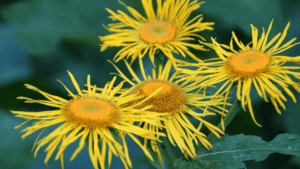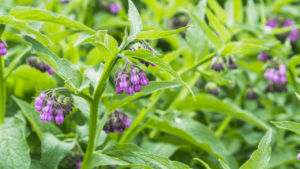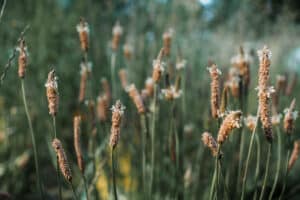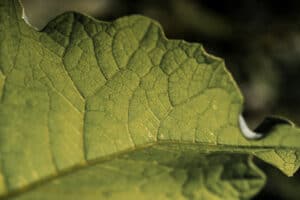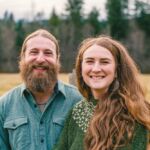Table of Contents
Today I want to talk about some critical turning points that all of us face when we’re walking the plant path: developing competence and confidence as an herbalist. If there’s one thing that I’ve realized over the last 10+ years of being an herbalist myself, as well as interacting with a lot of beginner, intermediate, and advanced herbalists all across the world, it’s that we all come against these roadblocks in our plant path, things that are holding us back from reaching that next level in our practice of herbal medicine. What I’ve come to realize is that they ultimately distill down to confidence and competence.
People Need the Healing That Herbalists Bring
I believe this is important for all of us to consider and to think about on our plant path, because let’s face it, people need you. There’s someone out there who needs help, and you have the ability to provide them with the help that they need, whether that’s something really simple, like treating a cough or a basic urinary tract infection or someone’s having a hard time sleeping at night. Or perhaps harder scenarios like a more serious chronic condition like irritable bowel syndrome or chronic food allergies. People could even need some support in their psychological and emotional health, or maybe even trying to break through to their next level of their own spiritual development.
The whole premise of evolutionary herbalism is that we as herbalists have the ability to support people on all levels of health and well-being, so you’re needed at this time. It’s important for us to take a step back outside of our own lives and look at the bigger picture of the world right now, which is in chaos. It’s becoming more and more apparent every day how much healing is needed out there in the world. I believe (and I’m sure that you do too since you’re here with me) that the potency and power of medicinal plants have the ability to provide this deeper level of healing that people are seeking… and maybe they don’t even realize that they need it. So my point is, you’re needed.
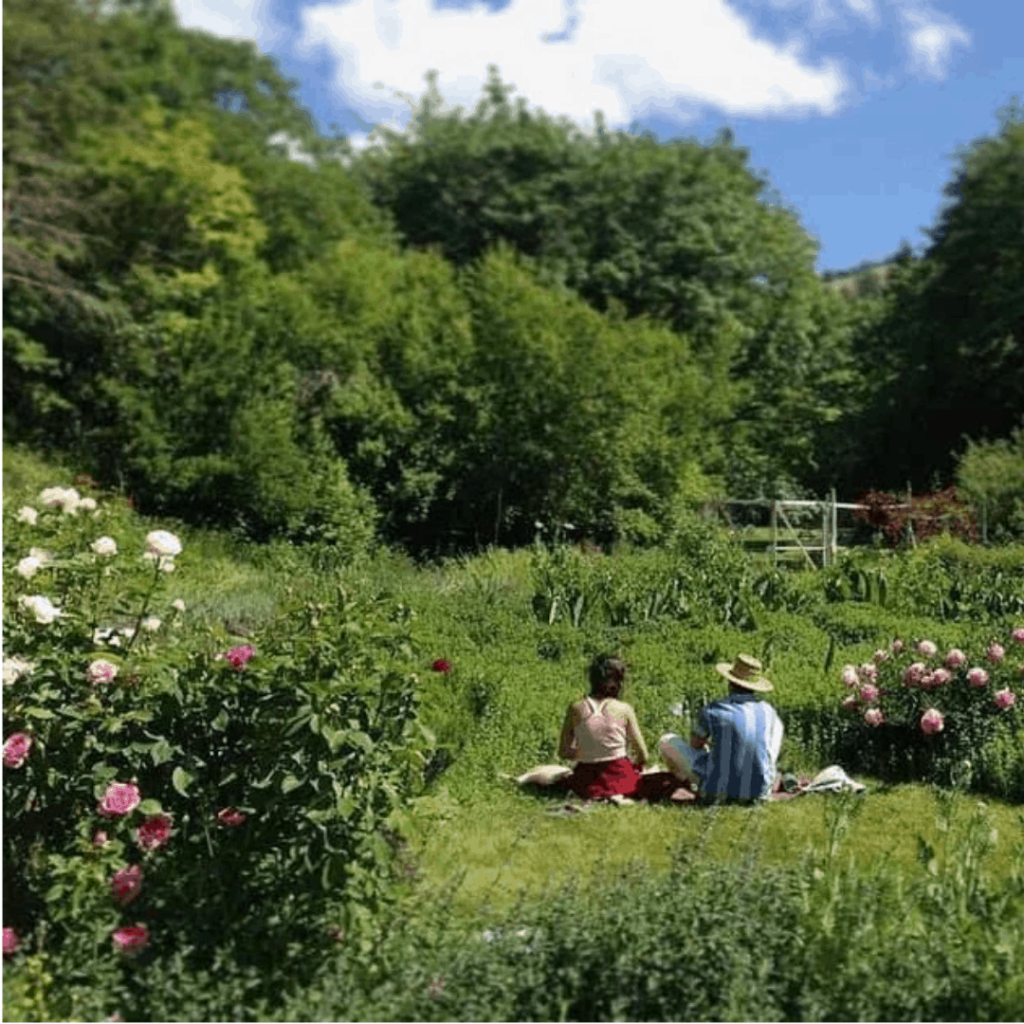
What Holds Herbalists Back?
So what’s holding you back from being out there and being of service to your family, your friends, your coworkers, your community, or your clientele if you’re working in a clinical practice? There are a lot of levels to being an herbalist. But no matter what level you’re at, whether it’s just using herbs for yourself or your close relatives, or whether you’re working in a clinic, the question is: what’s holding you back from reaching that next level in your work with medicinal plants?
This ultimately comes back to breaking through those things that are preventing you from reaching that next level, which I have distilled down to confidence and competence. We’re healers, we want to be in service to the world so we can make it a better place, not just for ourselves, not just for our future generations, but for the earth itself, for Gaia. The things that are holding us back are ultimately our own personal internal struggles that we deal with.
This is about our “inner game”. It’s your inner psychology and emotions and how those affect your outer game, or your performance out there in the world, how you’re representing yourself out in the world. If we don’t have that inner side of our life fine-tuned and dialed in (i.e., your confidence and competence), then it’s going to be hard for the outer work that you do in this world to be of integrity and to reach the greatest levels that are possible for you.
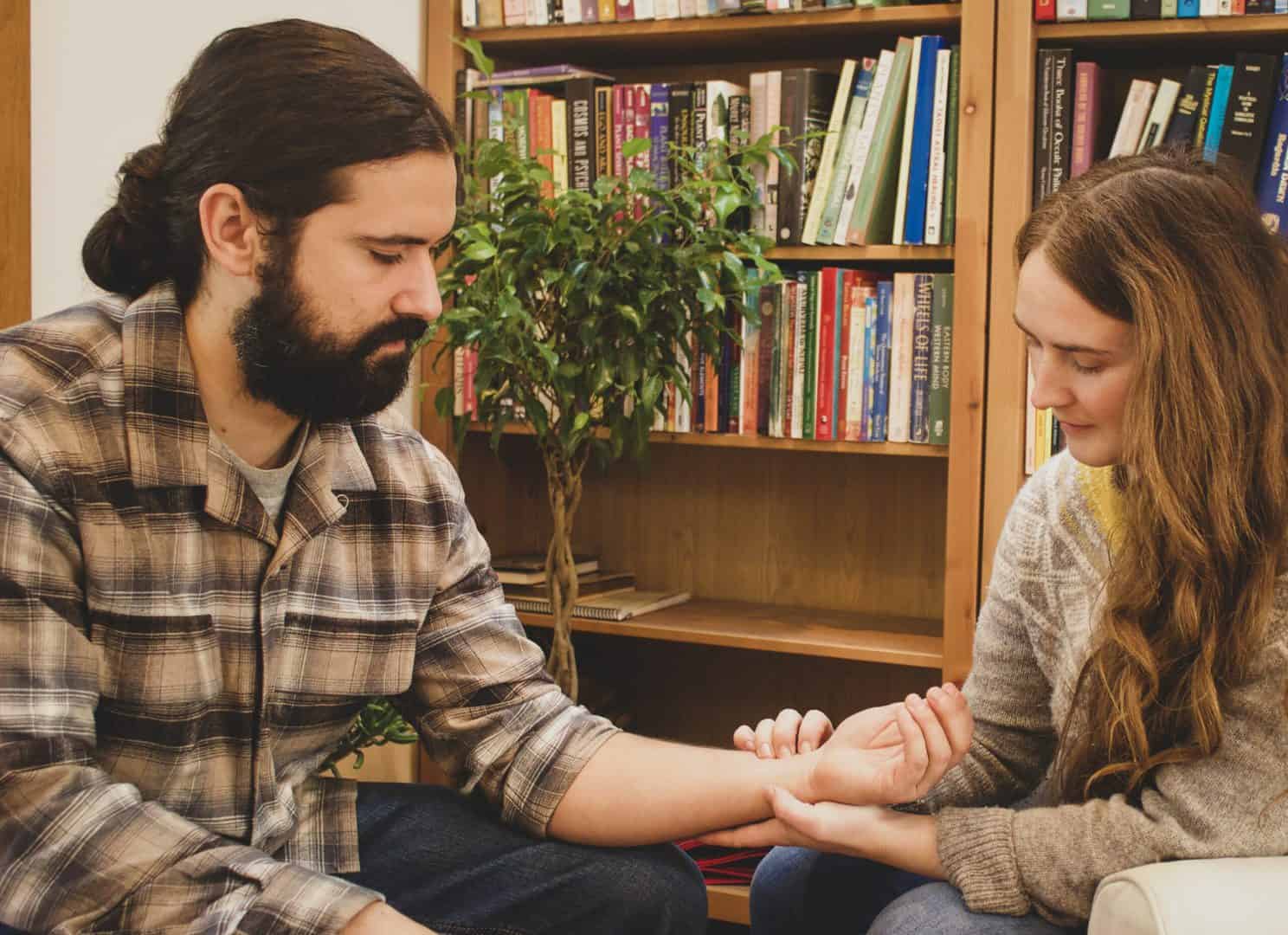
I believe this all really comes down to starting off with building your competence as an herbalist. In psychology, confidence and competence are like a feedback loop on one another. As you develop more competence, as you have a deeper level of understanding of the fundamental principles and practices of holistic herbal medicine, then you have the know-how, you have the knowledge, you have the understanding, you have the wisdom that will give you the confidence to make yourself available to help someone. If you don’t have that competence, it’s hard to be very confident.
Conversely, as your confidence grows, you start to take on more challenging cases or you’re more open to try to help someone who is outside your comfort zone. Maybe they come to you with a problem that you’ve never treated before, or you’ve never even heard of before, but because you have faith and belief and trust in the herbal medicines that you work with, you’re going to be willing to stretch your competence level to the next stage.
Confidence and competence feed back on one another. I’ve noticed that, if there’s one thing that holds an herbalist back from helping people, it’s that they don’t feel confident in themselves. Maybe they feel like they need to take another workshop or read another book or do another online program, or they need to do whatever it is they need to do. They have a “not enough” feeling inside, and that’s holding them back from being of service. So I want to talk about some simple ways that you can develop your confidence and competence as an herbalist.
Developing Competence as an Herbalist
Let’s start with competence. What are the things that you can do to become more knowledgeable and more strategic in your practice of herbal medicine? The first thing is, obviously, you’ve got to know your remedies. The foundation of herbal medicine is really having a solid understanding of a broad spectrum of plant medicines. I always say that it’s better to know a small handful of remedies with depth and with precision. Really know those herbs inside and out, rather than knowing 500 herbs superficially.
For most of us, that’s the way we relate to people too. Most people would rather have five to 10 really tight, close friends that they have deep levels of intimacy and trust and connection with than one hundred Facebook friends that you don’t even know, the relationship just kind of skims the surface. The same is true with your plants.
So the first step in developing your competence as an herbalist is to find those remedies that really call to you, those plants that really speak to you, those plants that you find just really interesting, and to really dig in and get to know those plants holistically, not just knowing what types of symptoms they’re good for, but really understanding all the various ways they relate to the human organism on a physiological level, their actions and what types of organ systems and tissues they have an affinity for, how they shift the ecological status of the body, and their psychological and spiritual properties. Intelligently selecting and knowing 20 to 30 herbs that cover a broad spectrum of organ systems and tissue states and different parts of the body can give you a solid foundation and give you most of the tools that you need to treat a wide range of common, acute symptoms that people come to the herbalist struggling with. So you’ve got to know your remedies holistically.
The second thing that you need to develop your competence as an herbalist is knowing how to work with people. This is a commonly overlooked element of plant medicine. We get so focused on the herbs and the medicine making and all the aspects with the plants. Obviously we’re herbalists, so we love plants, but the other side of the herbal medicine equation is the people that we give the plants to. So you have to learn how to work with people, how to do a good intake, how to ask the right questions, how to assess what’s going on in their body, where is the root of the issue that they’re facing, their primary complaint, and being able to get down to that root cause within the tissues, within the organ systems, potentially even within the psyche and within the soul. We have to develop skills in terms of how to interface with human beings so that we can get all of the information that we need to get in order to determine what plants are going to be most beneficial for them.
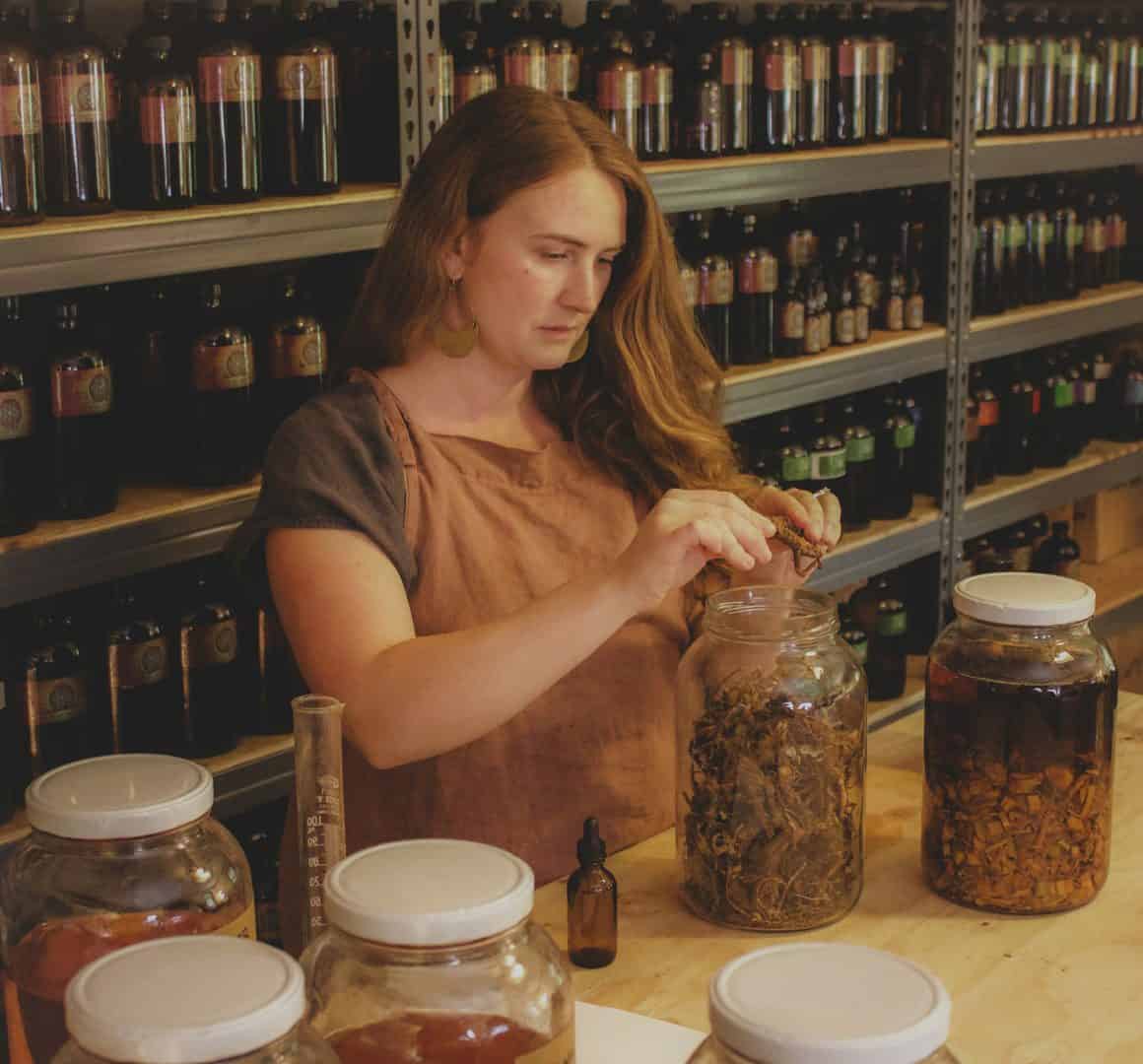
To me, the herbalist is a bridge between the human and the botanical kingdoms. I believe that’s our ecological function. We tend to think of our own life purpose and what we’re put here on this earth to do from our own perspective. But I believe that we all have an ecological function as well. From my perspective, the ecological function of the herbalist is to be a bridge between the world and the earth, the human kingdom and the plant kingdom, because the plants need us. Not everyone wants to be an herbalist or a healer. But everyone has healing work to do. And so it’s our job and our duty to understand the language of the plants, to understand the language of the human organism, and be able to translate between them so that we’re able to weave together the consciousness, the intelligence, the chemistry of plants into the human body, psyche, and soul to produce a therapeutic benefit. So you’ve got to know how to work with people.
The third way that you can develop your competence as an herbalist is understanding the process of administration and formulation. You know your herbs holistically, you know the people holistically. Now how do you bring them together? How do you determine the best remedies to give to a person? That requires having a knowledge of how to bring plants together into a formula that’s going to address the wholeness of the person. So we can look at formulation strategies and how, when you combine one herb with another herb, it creates a whole that’s greater than the sum of the parts. There are certain ways of formulating plants together that will match and be very specific for every element of what’s going on within a person’s life to address their wholeness.
There are many skills in understanding administration and formulation. Do you give them a tea, a decoction, an infusion, a powder, a fomentation, a tincture, a spagyric? What’s the form of the medicine that you’re going to give them? How are you going to combine those plants together? Not just in a mishmash, kitchen-sink formula, just throw a whole bunch of respiratory herbs for the respiratory infection and hope that it’s going to work. We don’t want to be “hope herbalists.” We want to be knowledgeable, strategic herbalists. Understanding the principles of administration of botanical medicines is a critical element of developing your competence on your plant path.
As you start to integrate those three things—learning your herbs holistically, understanding how to work with people, and knowing the administration and formulation of herbs—this starts to build a body of knowledge within you, where you understand the language of plants and people, and the integration point, so that when someone comes to you with a problem, you’re going to have the understanding and know-how for what to do, and therefore you’re going to be more confident in yourself.
Developing Confidence as an Herbalist
There are three ways that I think you can integrate and strengthen your confidence as an herbalist. One of the first things is to just start helping people with small things. I’ve known so many herbalists who have so much training, so many skills. They’ve been to tons of workshops and retreats and conferences and read dozens and dozens of books. They really know their stuff. And maybe they have a friend who has a cough or something, but they hesitate. They hold back. They don’t put themselves out there to help them, because they’re unsure of themselves. There’s a blockage that can sometimes develop within people where they don’t put themselves out there because they feel like they need that next piece of information. But the truth is, the next piece of information that they need isn’t found in a book or a video or a workshop or a conference or a retreat. It’s in experience.
Book knowledge and intellectual knowledge of herbalism only gets you so far. The next level of your training necessitates that you start working with people. It’s usually best to start with those small things. Maybe the cough or the cold or the flu or the hard time sleeping at night or the fatigue during the day or the stress and anxiety. Some of those things that generally are more straightforward and simple to work with. And you just start helping people. They start feeling better and sleeping better at night, or that cough cleared up really quick. So you’re starting to see that the herbs you’re giving them are helping them. I think the ultimate way to build your competence as an herbalist is to get those small wins.
That leads to the second piece: small success builds your confidence. To me, there’s no such thing as a small success, because you’re healing someone and that’s no small thing. But the more that you can start to give people simple remedies, simple formulas, to help some of their common complaints and conditions that they struggle with in their life, it starts to instill this strength in yourself and strength in your confidence as a plant practitioner.
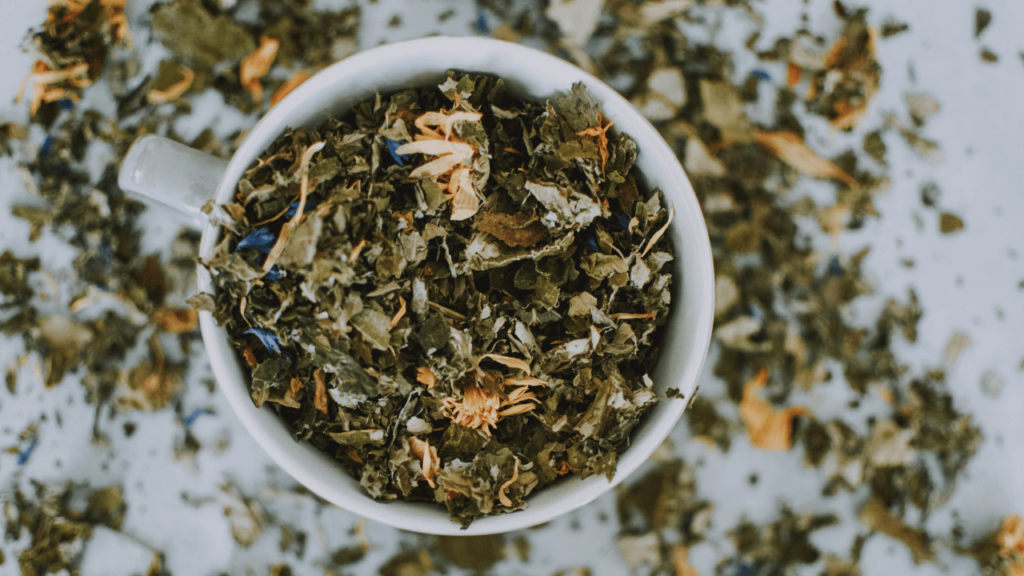
The third piece is one of the most important pieces: you have to learn to trust in the medicine. Oftentimes when people lack confidence as an herbalist, while on the surface it seems like they don’t have confidence in themselves, I would argue that on a deeper, maybe subconscious level, it’s actually a lack of confidence in the plants. There’s a lack of faith and trust and belief in the power and potency of herbal medicines. This is a really, really important point. I want you to really take this in, because one of the most important things for those of us walking the plant path is that we have to have an incredibly deep level of trust in the medicines that we work with. How can we expect a person coming to us asking for help to trust in us and to trust in the bottle or the baggie of plants that we give them if we don’t trust in it? When you’re working with people, there’s an invisible dynamic at play, where you really want to develop trust amongst your clients, because the level at which a client will trust you is the level at which they’re going to open up and share the critical pieces of information that are going to enable you to best serve them. But they’re not going to open those things up if they don’t sense on the subconscious level that they can trust you. And they’re not going to sense on the subconscious level that they can trust you if you don’t trust in the plants that you’re giving them.
One of the biggest ways to get over this is to go deep into your remedies, to heal yourself through the plants. This is one of the core pillars of evolutionary herbalism, which is “know thyself” or “heal thyself.” The only way that we can provide transformational levels of healing for the people that we serve is that we ourselves have received the transformational healing properties of the plants within our own lives. The level of depth that we’re able to be of service to people out in the world, the depth of the healing that we can provide is totally dependent on the depth of healing that we’ve gone through within ourselves through the plants.
As an herbalist, I think there’s always a point on our plant path where we’re deeply touched by a medicine, that we find that remedy, that herb, that plant, that root leaf flower, bark, or seed that transforms us, that changes our life, maybe it saves our life. When we’re touched by a plant in that way, it changes who we are. We have a deep level of respect and reverence and belief and trust and faith in the medicines that we work with because we’ve experienced that level of transformational healing. Maybe some of you have experienced this. I’d love to hear about it in the comment section below.
Getting to the Next Stage of Your Plant Path
I wanted to share this with you because these are some of the things that I see are roadblocks to people becoming a practicing herbalist, to putting yourself out there, to be of service to the world, through the healing power of plants. I hope that this resonates with you and that it speaks to where you’re at on your plant path. Maybe you need to work on developing your competence. Maybe you need to work more with developing your confidence. No matter where we’re at on our plant path, we can always strive to learn more. We can always strive to grow more. We can always strive to learn more about the plants that we work with. We can always learn more about ourselves and refine and develop that inner game so that we can move out into the world and provide the healing that is so desperately needed.
I’d love to hear about where you’re at in your plant path. Do you feel like you need to develop your confidence and competence within yourself? What are the things that are holding you back from furthering your growth and development as an herbalist? I’d love to hear about it. Post it in the comment section underneath this video. Whether you’re watching this on YouTube or on our blog, or listening to it on the podcast, please leave us a comment or review. And please share this on any of your social media channels. Pass it along to another plant practitioner who would benefit from this teaching.


